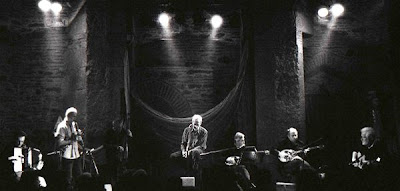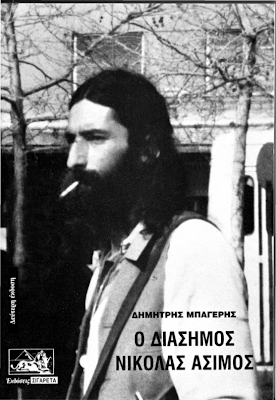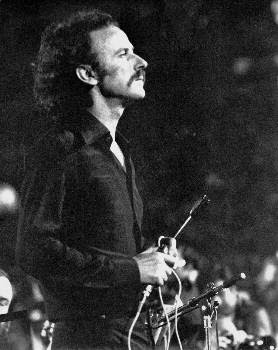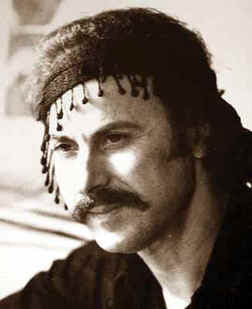Nikos Kazantzakis
"I grabbed my stick and a bag heading to the mountains. It was the time that the Germans were pressing Norway, fighting to conquer them.
One afternoon, passing by Psiloritis foothills, I listen to a loud and rough voice up there:
— Hey, my friend, wait! Wait, I want to ask you.
I lifted my head and I saw a man rolling down the rocky hill. He was descending with broad strides, from rock to rock, the stones trickled noisily under his steps, one would think that the whole mountain was rolling with him. I could see now clearly that it was a giant old-shepherd. I stood there and waited. What does he want from me? I thought; and why so passionately?
He came close, stood on a stone; his chest open, hairy, it steamed.
— Well, my friend, he says panting, how is Norway?
He had heard that a country was in danger of enslaving, and he didn't even know what is Norway, where is it, which people live there; one thing only was clear to him, that freedom was in danger.
— Better, granpa, I responded, don't worry; better.
— Thank god, the old-shepard roared, crossing himself.
— Do you want a ciggarette? I asked.
— What is to me the ciggarette? I want nothing; If Norway is better, that's enough!
He said, stretching his shepard's stick and started walking uphills again, to find his herd.
It is true, the Greek air is holy, I thought, it was definately here where freedom was born. I do not know if any other shepard of this world would live in such an agony and selflessly as this one the despair of this distant unknown land, that fights for its freedom. Norways' fight has become this Greek shepard's fight; because he thought of freedom as if she was his daughter."
Nikos Kazantzakis, Report to Greco, p.448-449. 1961
Undoubtedly the most important Greek writer and philosopher of Modern Greece. We chose this small quote as an expression of solidarity to Turkish people and their just fight.
This amateur translation from Greek was written by Skip the Greek.























